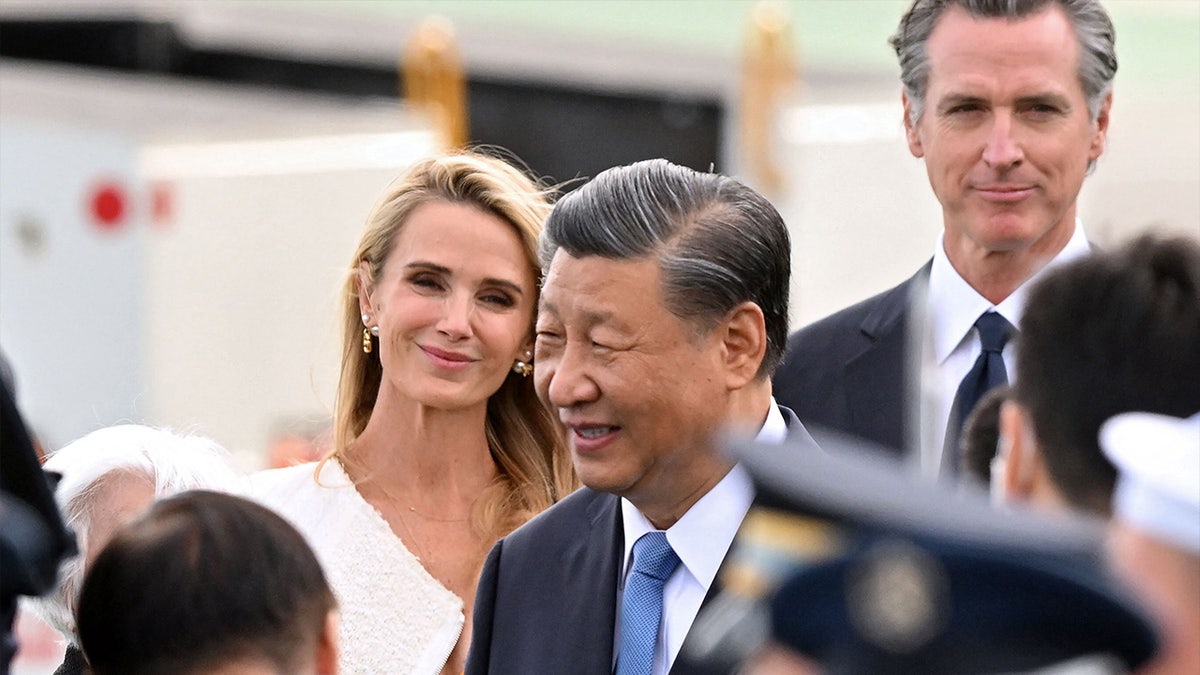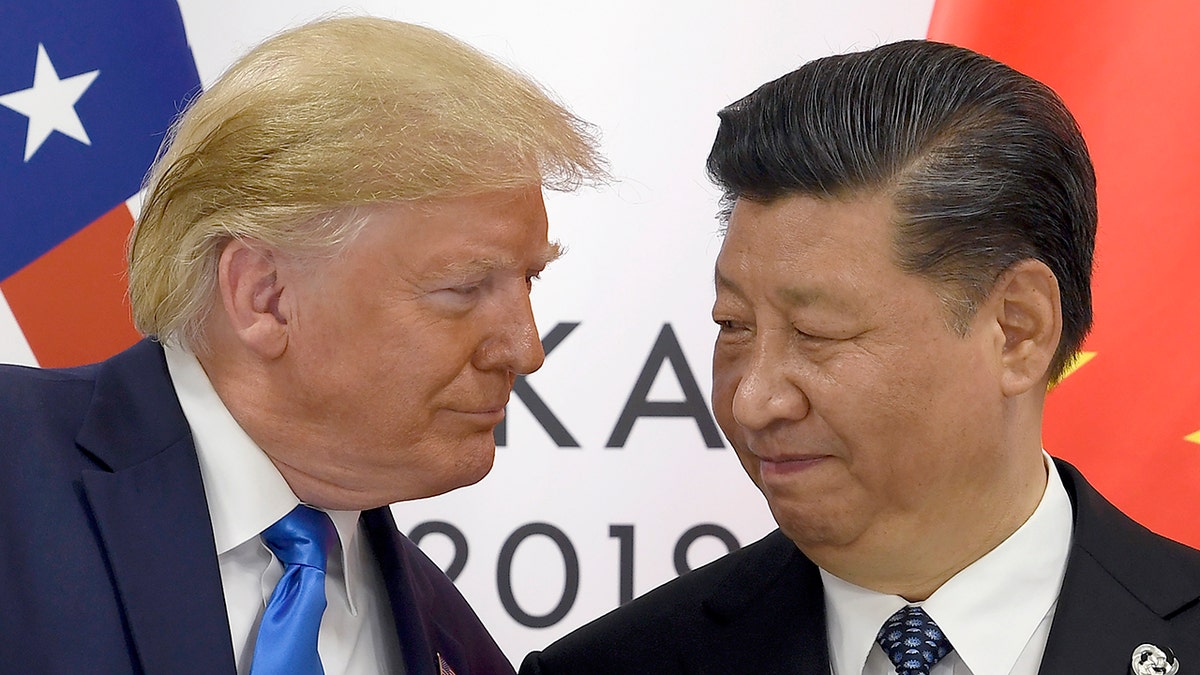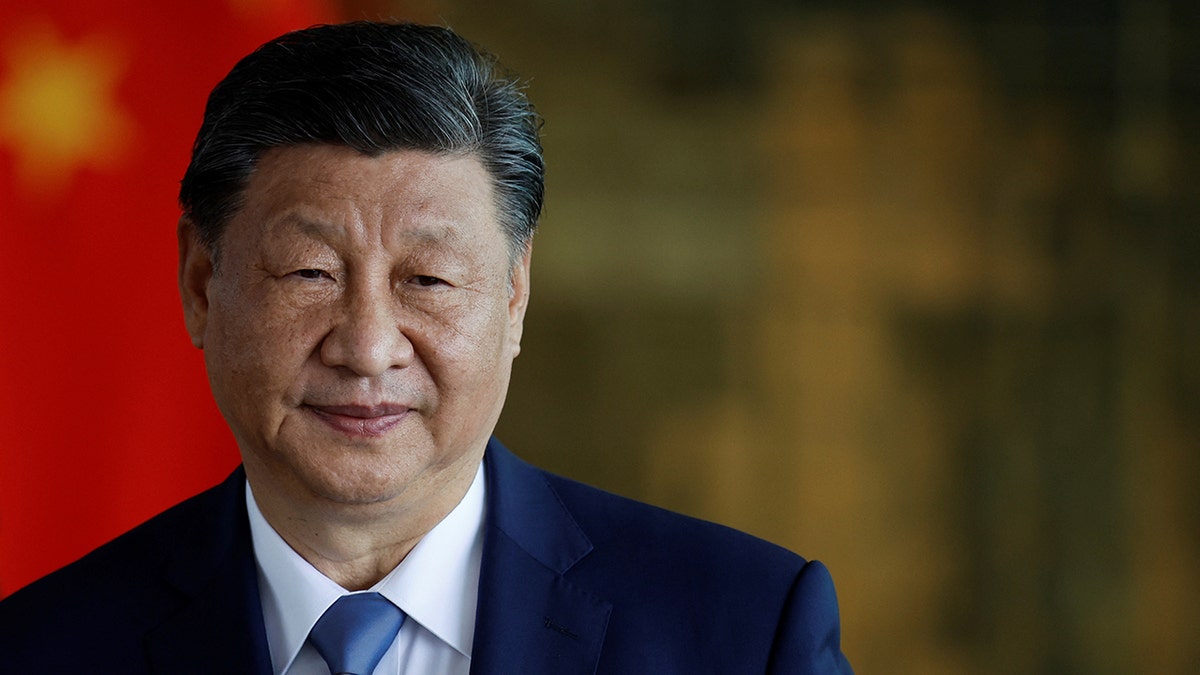As the U.S. looks to better secure itself from threats posed by the Chinese Communist Party (CCP), Beijing is skirting efforts to clamp down on Chinese interference by utilizing a core American principle, the separation of state and federal powers.
While the U.S. federal government over the last several years has taken steps to protect against potential threats posed by Beijing – like efforts to restrict its ability to invest in U.S. farmlands over concerns that China could use the land for espionage schemes – it has failed to address China’s most utilized tool: influence.
According to a report titled, “The Near Enemy: China’s Subnational Reach Into the United States” and released on Tuesday by the Foundation for Defense of Democracies (FDD), China’s localized subnational relations in the U.S. are its driving force behind Beijing’s continued influence in a range of sectors nationwide.

California Gov. Gavin Newsom is on hand to greet Chinese President Xi Jinping as he arrives in San Francisco to attend the Asia-Pacific Economic Cooperation (APEC) leaders’ week on Nov. 14, 2023. (Frederic J. Brown/AFP via Getty Images)
CHINA ATTACKED US WITH HACKERS. WE NEED TO HIT BACK HARD
“Chinese subnational influence in the United States today grossly outweighs the capacity enjoyed by any other external power. It also dwarfs the leverage cultivated by the ‘active measures’ playbook deployed by the last U.S. great power rival, the Soviet Union,” the authors of the report found.
This sphere of influence is obtained by skirting federal policies and instead focusing on relation-building at the state and local levels, whether this is through private contracts, state-based programs, or acquisitions and investments that create jobs and boost local economies.
“State and local governments are more ‘pragmatic’ than their federal counterparts, focused on ‘employment and economic development’ rather than security concerns,” the authors said in reference to a 2019 report by the state-owned news agency Xinhua that reviewed local U.S. government relationships with China despite the ongoing trade war ignited one year earlier under the then-Trump administration.
The Chinese report found that “U.S. local governments actively seek cooperation with China,” and according to the FDD’s most recent findings, this attitude toward Beijing has not changed when it comes to state leadership on both sides of the aisle.
“An asymmetry exists within the U.S. federal system’s division of labor. National authorities carry responsibility for national security and international trade policy. State and local authorities focus on the provision of public goods and economic development,” the FDD report found.

President Trump meets with Chinese President Xi Jinping on the sidelines of the G-20 summit in Osaka, Japan, on June 29, 2019. (AP Photo/Susan Walsh, File)
“As a result, Chinese subnational influence efforts that disproportionately emphasize economic impact – particularly inbound investment at the subnational level – can bypass security mechanisms that exist at the national level,” the report added.
BIDEN ADMIN DOUBLING TARIFFS ON CHINESE SOLAR PANEL PARTS AFTER REPORTED ‘INDUSTRIAL ESPIONAGE’
The report pointed to relationships that have been fostered between both Democrats and Republican leaders, including California Gov. Gavin Newsom, who last year visited China and met with Chinese President Xi Jinping. They reportedly discussed issues ranging from economic development to cultural exchange programs.
Similarly, in 2018, as the trade war with China was kicking off, Arkansas’ Republican governor, Asa Hutchinson, said during an event hosted by the National Governors Association, and attended by China General Chamber of Commerce Foundation – a group committed to fostering U.S.-China business cooperation – that subnational cooperation with China “is very important.”
“Obviously, our federal government runs our foreign policy and our trade policy. But the more we can build relationships at the state level, then the more successful we will be at the national level,” he added.
But according to the findings of the FDD report, this sentiment is the core issue facing the U.S. today and its inability to effectively safeguard itself from Chinese interference in areas ranging from trade and investment to technology, education systems, media and research enterprises.
“American policy responses to China lack coordination. Defending against China’s subnational influence arms requires a more integrated approach to address the complex collective action problem posed by China’s cultivation of influence through state, local, and commercial avenues in the United States,” the authors wrote.

China’s President Xi Jinping attends a meeting with Brazil’s President Luiz Inacio Lula da Silva, in Brasilia, Nov. 20, 2024. (Reuters/Adriano Machado)
CLICK HERE TO GET THE FOX NEWS APP
The FDD experts reported that China sees state and local actors as “valuable and ripe targets for influence efforts” that are effective in not only securing investment deals and cultural programs, but in swaying national narratives.
“The Chinese Communist Party takes a deliberate approach to finding seams in U.S. defenses and working to establish a united front that extends the CCP’s influence beyond China’s borders,” Nathan Picarsic, FDD senior fellow and co-author of the report told Fox News Digital. “State, local and commercial avenues provide openings for Beijing to manipulate – and through which it can evade the barriers imposed by an increasingly hawkish Washington.”
“For the United States to effectively and efficiently respond to the threat of the CCP’s global positioning – across domains of competition, whether measured in capital, technology or military power – we must first address the CCP’s presence in the United States,” he added.
Fox News Digital reached out to Gov. Gavin Newsom and former Gov. Hutchinson for comment.
